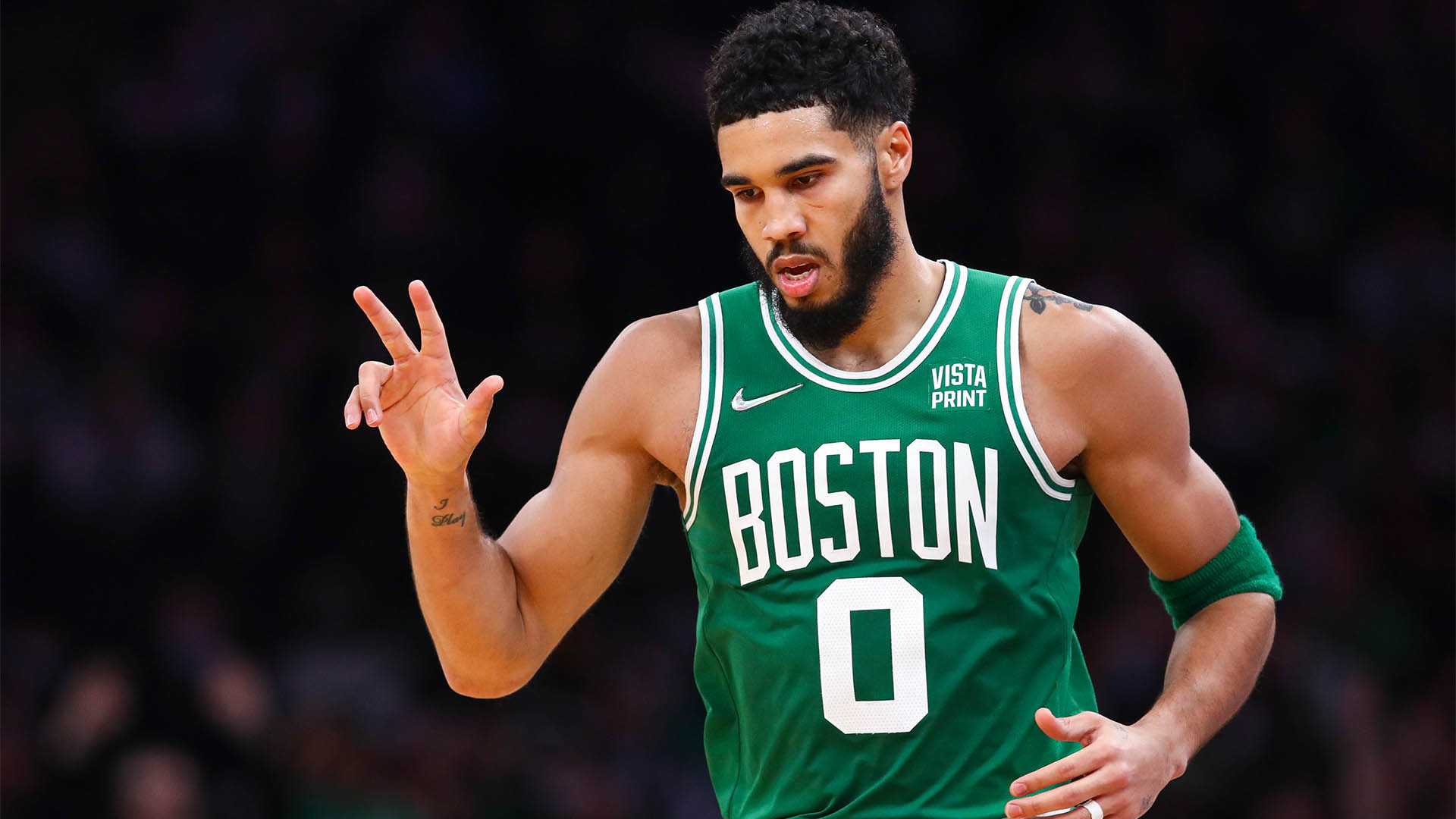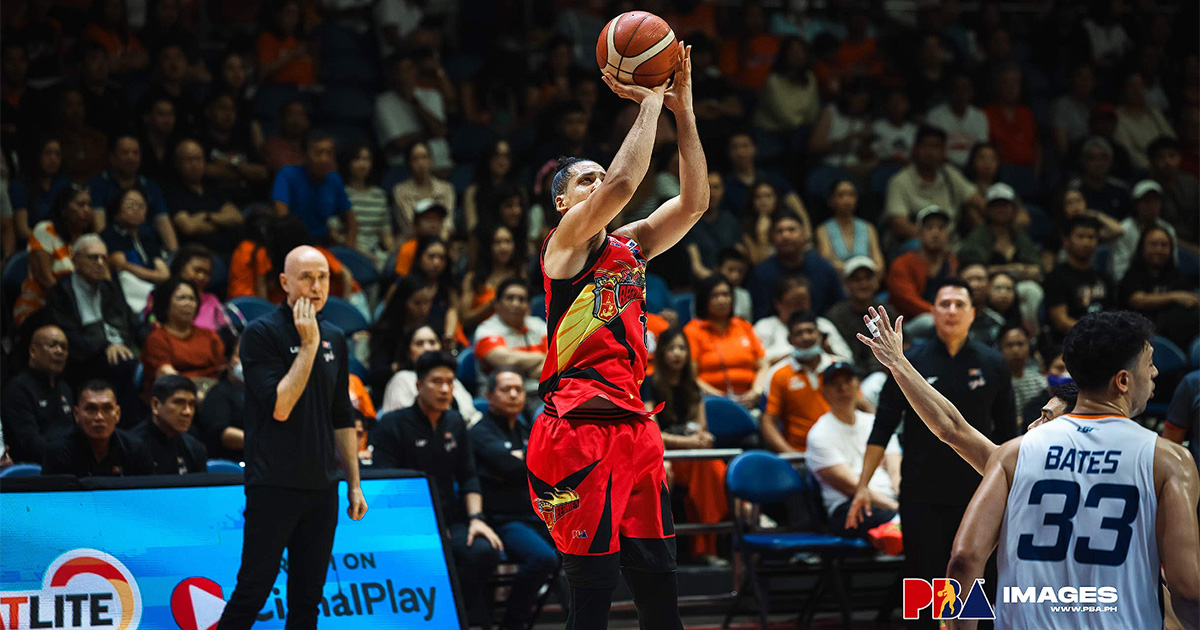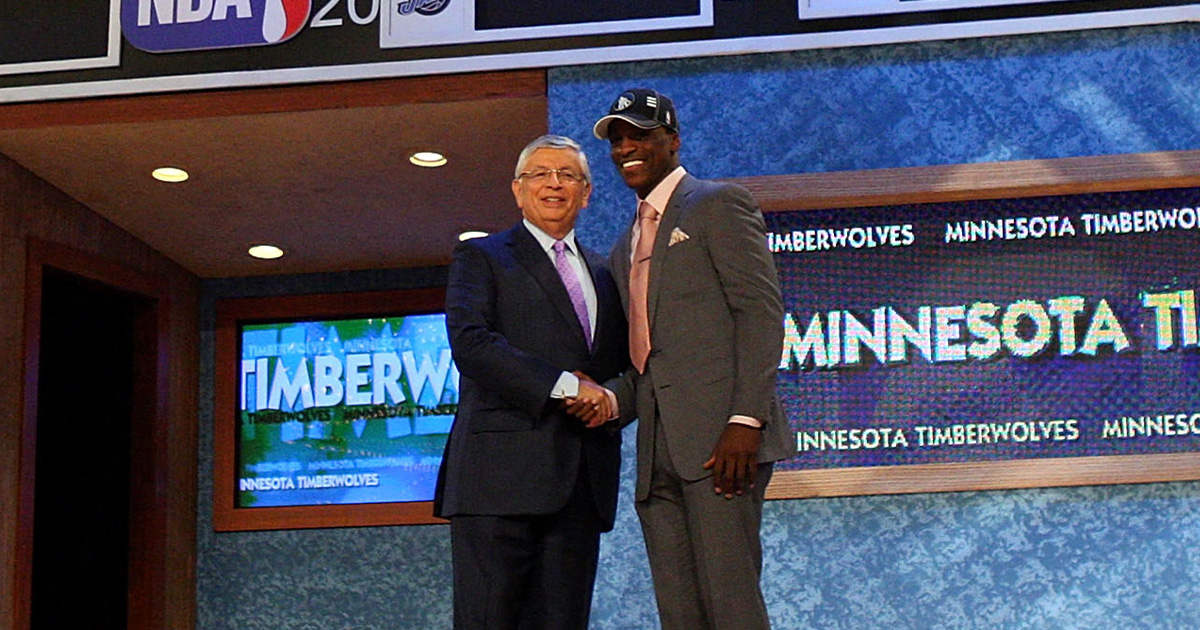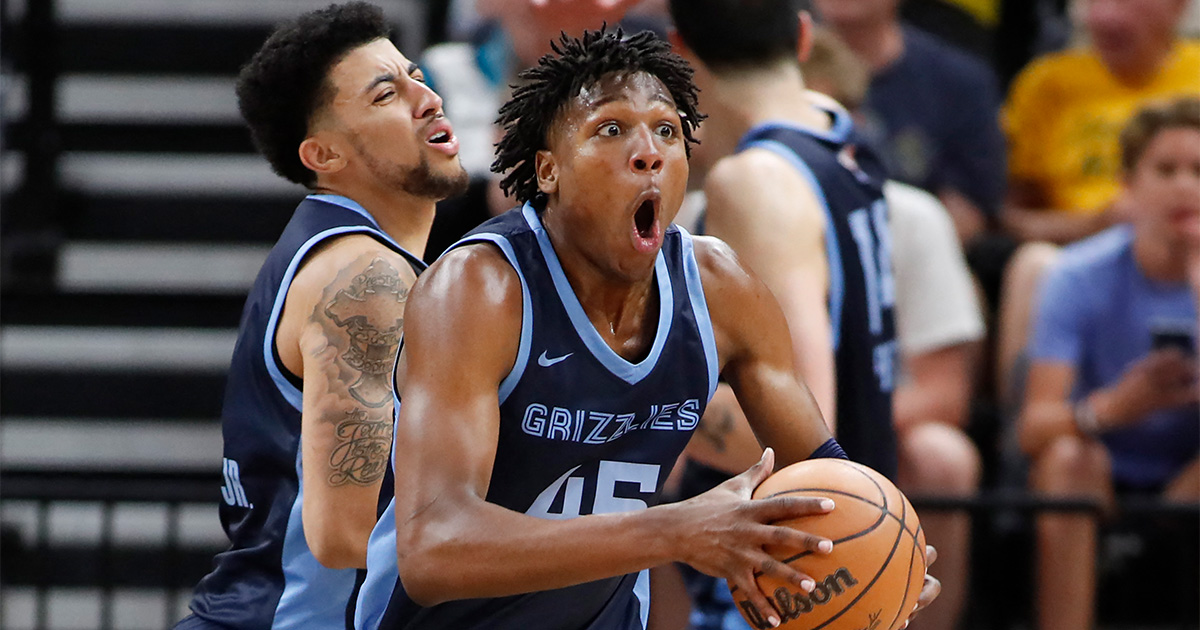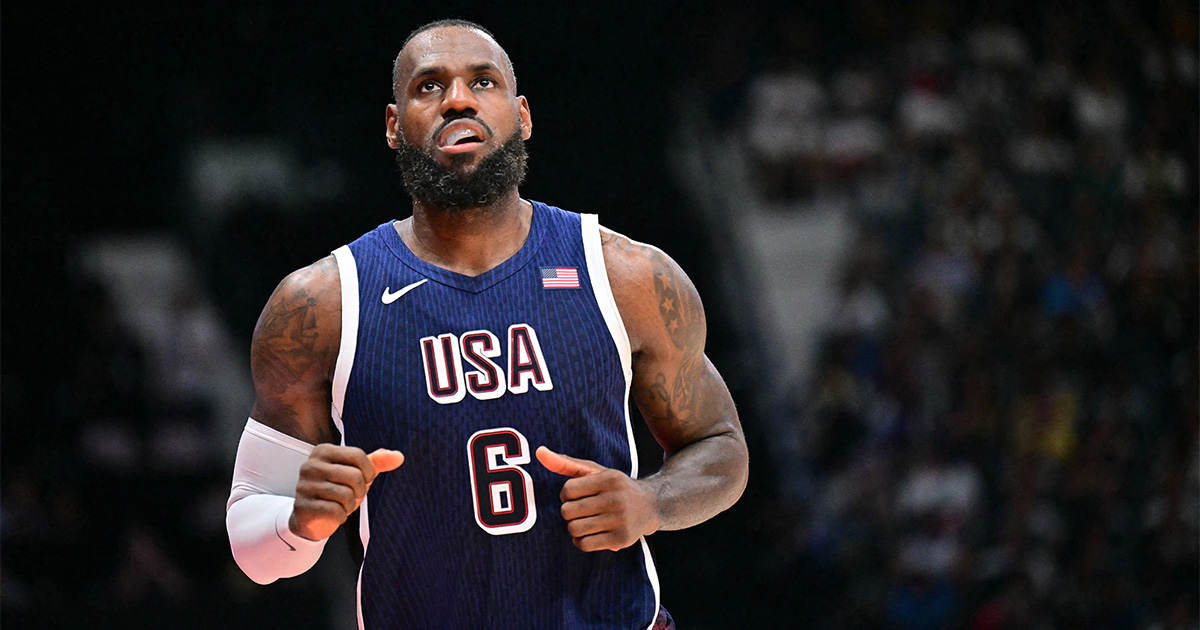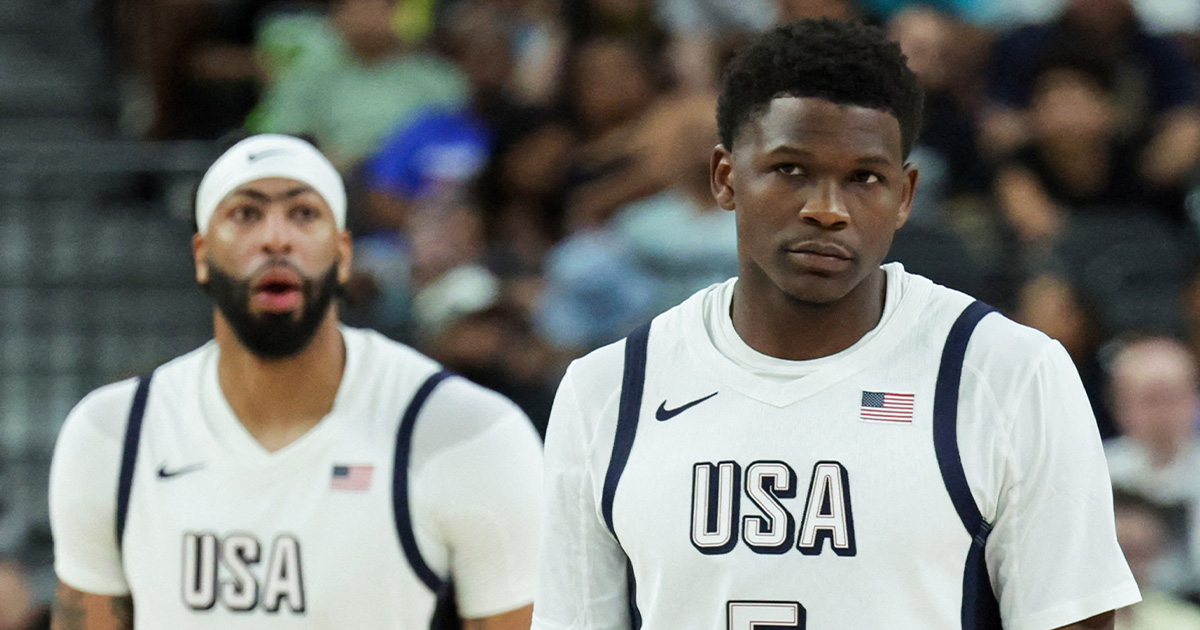Last month, ESPN published a story on the Celtics which included a damning quote on Jayson Tatum from an Eastern Conference assistant coach. “Jayson Tatum is about Jayson Tatum. I don’t think he cares about winning now, and if he does, it is on his terms. He doesn’t want to score 15 and win. He wants to score 39 and win.”
The Celtics were quick to dismiss the claim, with president of basketball operations Brad Stevens branding it as “absolutely ridiculous” and “idiotic.” What else did you expect Stevens to say? But if you read closely at Stevens’ response, note that he only takes issue with the insinuation that Tatum doesn’t care about winning: “Just be around this guy every day. That guy loves to win. He’s sitting there with his feet in the ice bucket after every game that we lose and he looks despondent. This guy’s competitive. I know that for a fact. I’m glad he’s on our team.”
Stevens was conspicuously mum on the claim that Tatum only wants to win on his own terms. In and of itself, it doesn’t sound too controversial. LeBron James won on his own terms by starting the superteam trend when he took his talents to Miami just over a decade ago. Kevin Durant won on his own terms by one-upping LeBron and joining the 73-win Warriors in 2016. Giannis Antetokounmpo won on his own terms by signing an extension in Milwaukee and winning the hard way.
“He wants to score 39 and win.” Now, that’s the problem. For one, Tatum isn’t on the same level as KD, Michael Jordan or Kobe Bryant as a scorer that he can simply just decide to go for 39 and get a win. Tatum has never averaged better than 27 points over a full season since he entered the league in 2017. For another, a selfish approach doesn’t usually translate to wins. Jordan averaged 37.1 in 1987 and got swept in the first round by the Celtics. Kobe averaged 35.4 in 2006 and lost to the Suns in the first round.

Tatum is averaging 25.6 points this season on a league-leading 21.5 attempts per game. He is only shooting 41.7% from the field, 32.9% from three, and leads the NBA in missed shots. The Celtics have, in turn, underwhelmed this season with a 16-19 record, sitting at 10th in the East. They’ve gone 3-7 in their last ten games.
It feels like a lifetime ago that the Celtics were the envy of the NBA the year they drafted Tatum in 2017. They were fresh off an Eastern Conference Finals appearance, landed high lottery picks in Tatum and Jaylen Brown, signed All-Star Gordon Hayward, and upgraded from Isaiah Thomas to Kyrie Irving in the offseason. Everything looked like it was going according to Danny Ainge’s plan; the Celtics went 55-27 that season and pushed the Cavs to seven games in their East Finals rematch without Kyrie and Hayward. Tatum’s dunk on LeBron in Game 7 punctuated what then looked to be an inevitable future: the Celtics will own the next decade of the NBA with Tatum front and center as their franchise player.
But it all went downhill from there. TL;DR: the Kyrie situation self-combusted. Regardless, they still had Tatum. As the team handed the keys over to Tatum, however, they’ve progressively won less.
| Celtics W-L | Winning % | Tatum FGA | |
| 2019-20 | 48-24 | 0.667 | 18.6 |
| 2020-21 | 36-36 | 0.500 | 20.6 |
| 2021-22 | 16-19 | 0.457 | 21.5 |
There appears to be an inverse correlation between the Celtics’ winning percentage and Tatum’s field goal attempts per game. A couple of caveats: correlation doesn’t mean causation and the 2.5-season sample size is admittedly small. But the eye-test backs up what the table tells us.
Growing pains can be expected for young talents and Tatum is only 23. But KD had already won three scoring titles and took OKC to the Finals at the same age. Perhaps it’s an unfair comparison, KD being one of the all-time best pure scorers in the game, but with the amount of Tatum-hype coming out of Boston, you’d think he was the next KD.
The dilemma for Boston is that he is not, and the question is how long it will take for Brad Stevens & co. to finally accept that. There’s a difference between (a) building around Tatum and surrounding him with complementary pieces and (b) bringing in another star whom Tatum will complement.
The one thing that Tatum does best is score, and as inefficient as he has been this season, there’s little doubt around the league that he can be the focal point of an NBA offense. He may not be as elite as KD or Stephen Curry, but he’s still plenty good. If you ask me who I’d pick between him, Devin Booker and Donovan Mitchell, I’d probably just end up throwing a dart.
In this regard, he reminds me of another Celtics legend, Paul Pierce. Pierce was a prolific scorer, though not quite at the same level as his contemporaries Kobe and Tracy McGrady. The Celtics kept on building a team around Pierce after their 2002 ECF appearance, but the results didn’t justify the faith.
In the next 5 years, here were their results:
- Out in east semis
- Out in first round
- Out in first round
- Missed playoffs
- Missed playoffs
They finally hit a homerun in the summer of 2007 when they landed both Kevin Garnett and Ray Allen. KG became the Celtics’ best player who anchored their top-ranked defense, while Pierce shared the offensive load with KG and Allen.
That’s probably the best case scenario for the Celtics when it comes to Tatum, specifically pairing him with a KG-like defensive presence. But I’m not sure if there are any such moves to be made right now. Rudy Gobert, Joel Embiid, and Anthony Davis are the best defensive bigs today and none are presumably available.

The worst case is if Tatum is actually more similar to another high-volume scoring wing. One of the biggest knocks on Tatum is that he has struggled to find consistency this season. He’ll string together a couple of 30-point games followed by a series of off-nights. Although his free throw rate is up this season, he still struggles to get to the line with regular frequency when his shot isn’t falling.
Guess which ten-game run belongs to Tatum:
Player A
- 25 points, 10-21 FG
- 30 points, 11-21 FG
- 40 points, 17-33 FG
- 25 points, 10-22 FG
- 33 points, 12-20 FG
- 30 points, 12-23 FG
- 22 points, 10-24 FG
- 21 points, 9-21 FG
- 25 points, 9-19 FG
- 26 points, 7-16 FG
- 18 points, 6-17 FG
Player B
- 37 points, 12-25 FG
- 31 points, 9-17 FG
- 34 points, 13-22 FG
- 29 points, 9-20 FG
- 24 points, 10-25 FG
- 42 points, 16-25 FG
- 27 points, 9-19 FG
- 25 points, 9-24 FG
- 17 points, 5-14 FG
- 18 points, 6-19 FG
Player A is Andrew Wiggins in his last season in Minnesota before being traded to Golden State. Wiggins never averaged better than 23.6 points in a single season, but their career numbers are more comparable than what you would’ve initially thought. Wiggins has a career average of 19.5 points compared to Tatum’s 20.0, while Wiggins’s career field goal percentage is 44.8%, just slightly below Tatum’s 45.2% clip.
The Timberwolves finally gave up on Wiggins during his 6th NBA season, while Tatum is currently in his 5th. Wiggins has been rejuvenated with the Warriors (yes, you can bet an Andrew Wiggins is an All-Star piece is in the works), but it only happened because he was traded to a team which didn’t require him to carry the offensive load on a nightly basis, thereby allowing him to hone in on his strengths as a cutter and perimeter defender.
What if Tatum is basically a better-coached version of Wiggins? Minnesota shuffled through four head coaches during Wiggins’s six seasons there (including the disastrous Tom Thibodeau experiment), whereas Tatum had the benefit of playing for Stevens and his hand-picked successor, Ime Udoka. What if the best version of Tatum is as a secondary scorer, not the primary creator that the Celtics have asked him to be? We’re probably still two years away from having any serious conversation about the Celtics trading Tatum, but you heard it here first.
Whether he’s more of Pierce or Wiggins, one thing is for sure: the Celtics’ ceiling with Tatum as their best player is not a title-winning team.
*Records and stats updated as of Dec. 30 PHT

